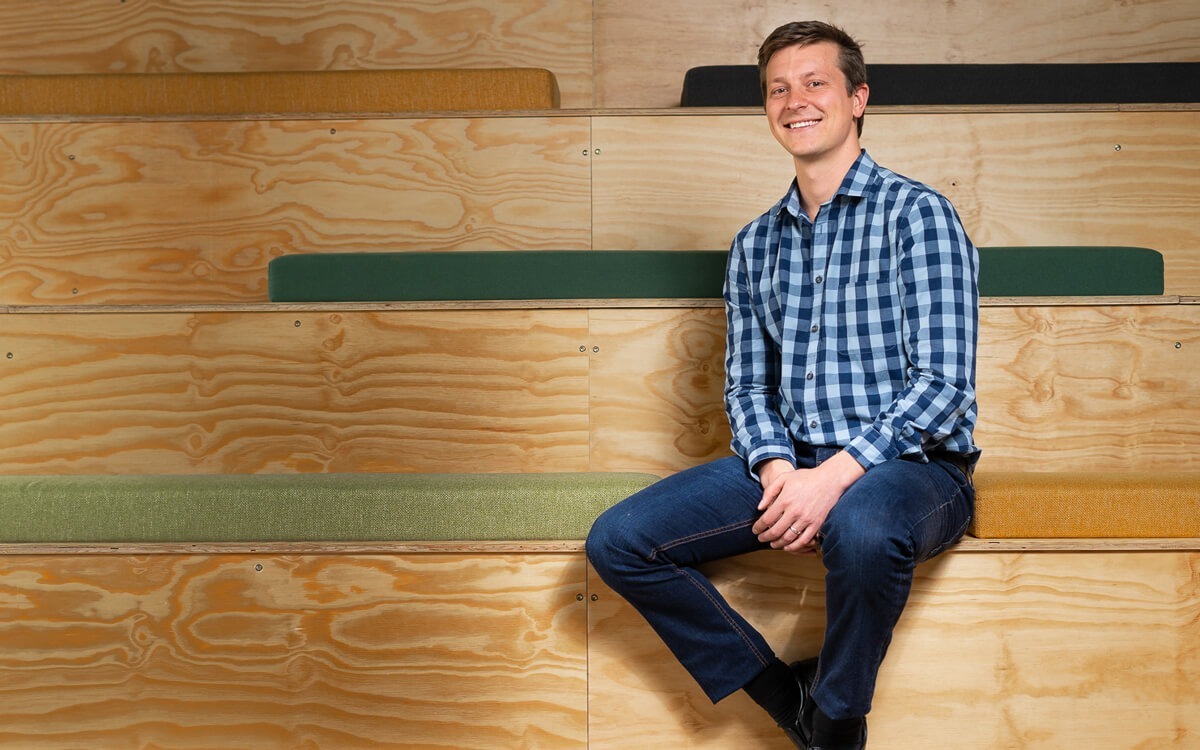
The following content is paid for by Bolt for Business.
Gareth Taylor, Country Manager at Bolt South Africa, considers himself an ‘intrapreneur’. Intrapreneurs are employees who think and act as entrepreneurs but within company.
“I believe that I can make a broader, positive impact within an agile organisation, like Bolt, with my natural entrepreneurial approach, than I could if I started my own business,” says Taylor.
This is not surprising from a leader with a very entrepreneurial background.
Before joining Bolt he had five-year career at the Awethu Project, one of the country’s leading incubators and investment funds, where he held numerous management positions including Head of Business Incubation and Post Investment Management and later Chief Operating Officer in 2017 and was part of the design and management team for the Awethu Project App, which won “Best Education Solution” at the 2017 MTN App of the Year Awards.
Before his time at the Awethu Project, Taylor worked as a management consultant at IQ Business, after a three-year career at Vox Telecom and Vox Mobile, as Product Manager and Executive Head respectively.
According to Taylor, there is a similarity between his previous vocation and his work at Bolt, particularly in empowering local entrepreneurs.
“At Awethu, we sought to develop a scalable platform that would enable microbusiness owners in the informal sector an opportunity to start and grow businesses that would create a livelihood for their families while giving them a path to become business owners that could earn a passive income regardless of whether they were working.
“This is what Bolt is doing, and at the type of scale we were dreaming of: individuals are able to start their own business as long as they have the right driver’s permit, access to rent a car and have a clear criminal record. What’s more, these independent contractors are then able to save and get to a stage where they can buy their own car to drive (therefore saving on a significant cost in their business) before saving up to rent out a fleet of vehicles which essentially enables them to earn passive income.”
Taylor talks to SME South Africa about the benefits of navigating the business world with an entrepreneurial mindset.
What was the transition like from Awethu, an NGO, to Bolt?
The first six months were an incredibly steep learning curve. However, both organisations have an inspiring purpose at their core, as well as serious entrepreneurial values and high code of ethics.
I like to say that at Awethu, I was working with thousands of entrepreneurs in hundreds of different businesses, assisting each of them to start or grow different, successful businesses.
Now, at Bolt, I’m working with thousands of entrepreneurs, with the same mission. However, because they are all starting/growing one type of business, there’s massive potential to scale the opportunities, even more than we could if they were operating different types of businesses.
What lessons have you learned so far as an ‘intrapreneur’?
There are 3 truths that I’ve had to learn that have added the greatest value to my career:
1. Managing my energy: if I look back on the times when I was performing at my best, there is a strong correlation with when my energy levels and outlook were at their peak. Use that insight to your advantage.
2. Managing my time: there is never going to be enough time in the day to get everything done. There are loads of tasks and people that are constantly vying for my time. As a result, I have a “not to-do list” where I am deliberate about what I mustn’t do. Part of this lesson is how indispensable an Eisenhower Matrix (Google it if you haven’t heard of it before; it’ll change your life) in ensuring I am as effective as possible.
3. Don’t be in a hurry to hire: it’s difficult not to rush into a hiring decision when you feel like you’re rushed to fill a post. No position is so urgent to fill that it trumps the importance of making the right people decision.
What challenges have you had to overcome?
There are three big challenges here:
1. The ability to delegate: it’s really difficult to delegate authority over “your baby” to other individuals – but it’s critical to hire great people and empower them by trusting them to ensure that you don’t stymie the business’s growth. When I moved into my first management position, I found the skill of delegation to be the hardest to develop.
2. There were times when I got so bogged down in the “everyday” of business that I didn’t step back for the big picture view. As the entrepreneur, you have to step back and take the 30,000 feet view, because nobody but you is going to be planning for the future – and then it’s only a matter of time until the maxim comes true: “If you fail to plan, you plan to fail.”
3. What I also found was that when I stopped prioritising, I stopped. As a small business, you’re only able to beat the bigger guys when you can learn faster, act smarter and be more agile. When I stopped learning, I lost sight of this.
In a Business Day interview you mentioned that your top tip for closing a deal is: “Be authentic and aim for a win-win”. Tell us a little about what other (lessons) social entrepreneurship has taught you – and that you are using now.
Pure capitalism is a flawed concept. It prevents the achievement of a greater good because ultimately, if you are winning, by implication, someone else in society must be losing (or doing worse).
Social entrepreneurship is about creating shared value; it’s not about winning at all costs. It takes into account the triple bottom line: profit; the impact on environment; and the impact on society. This is where the future of business is going with corporates being held to a higher bar than they were before. It now matters whether you provide plastic straws and where you source your coffee from.
Delving into the world of social entrepreneurship helped open my eyes to these concepts before they started becoming mainstream.
What would you like to tell small business owners about the Bolt for Business offering?
In previous roles, I would spend hours each week travelling to meetings. I tried to make the time productive by fitting in calls but ultimately, this travelling resulted in dead time.
I didn’t consider a service like Bolt because I thought it would be too expensive. If you do the maths, the finance on a R100,000 car will cost you ±R4,000 per month. Then add to that R1,500 monthly on fuel (at least) and a provision of R500 for services and all of a sudden that vehicle is costing you at least R6,000 monthly (and that’s not including parking fees or provisions for replacing parts).
If I do two trips every day with Bolt for R100 each, it comes to the same monthly cost. However, if I take into consideration that I’m now able to work whilst in transit that’s a serious win for my business as I can now be productive while on the road.
Companies can sign up online at http://bit.ly/BoltBusiness






